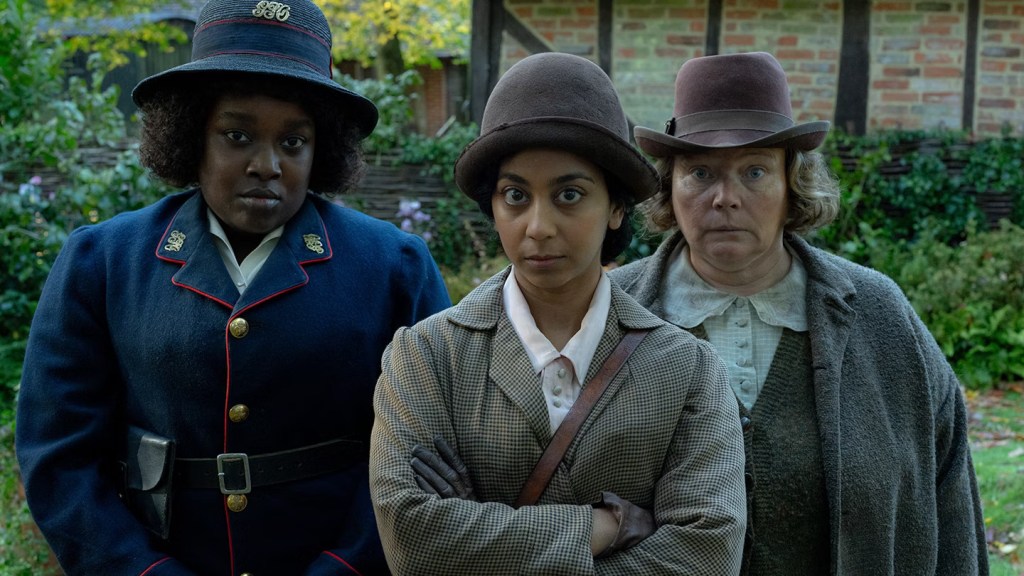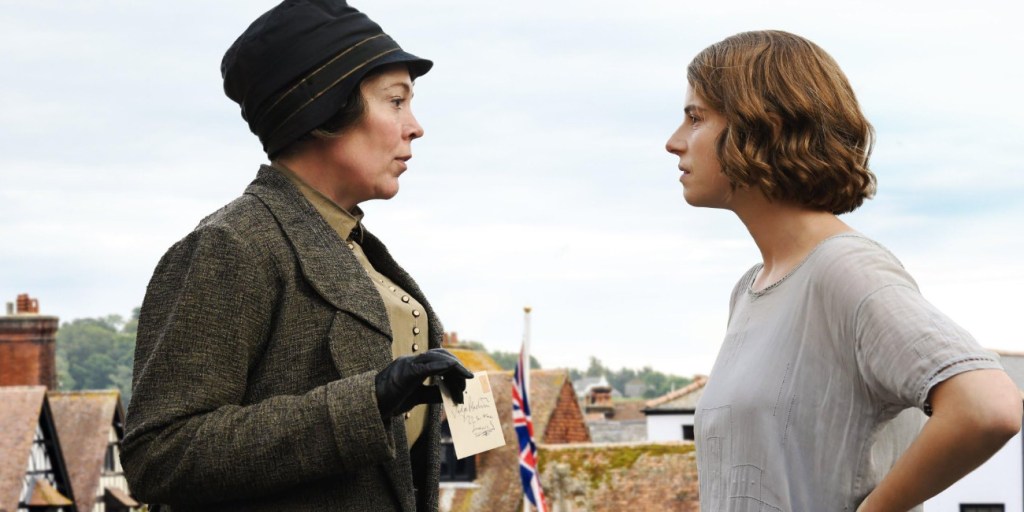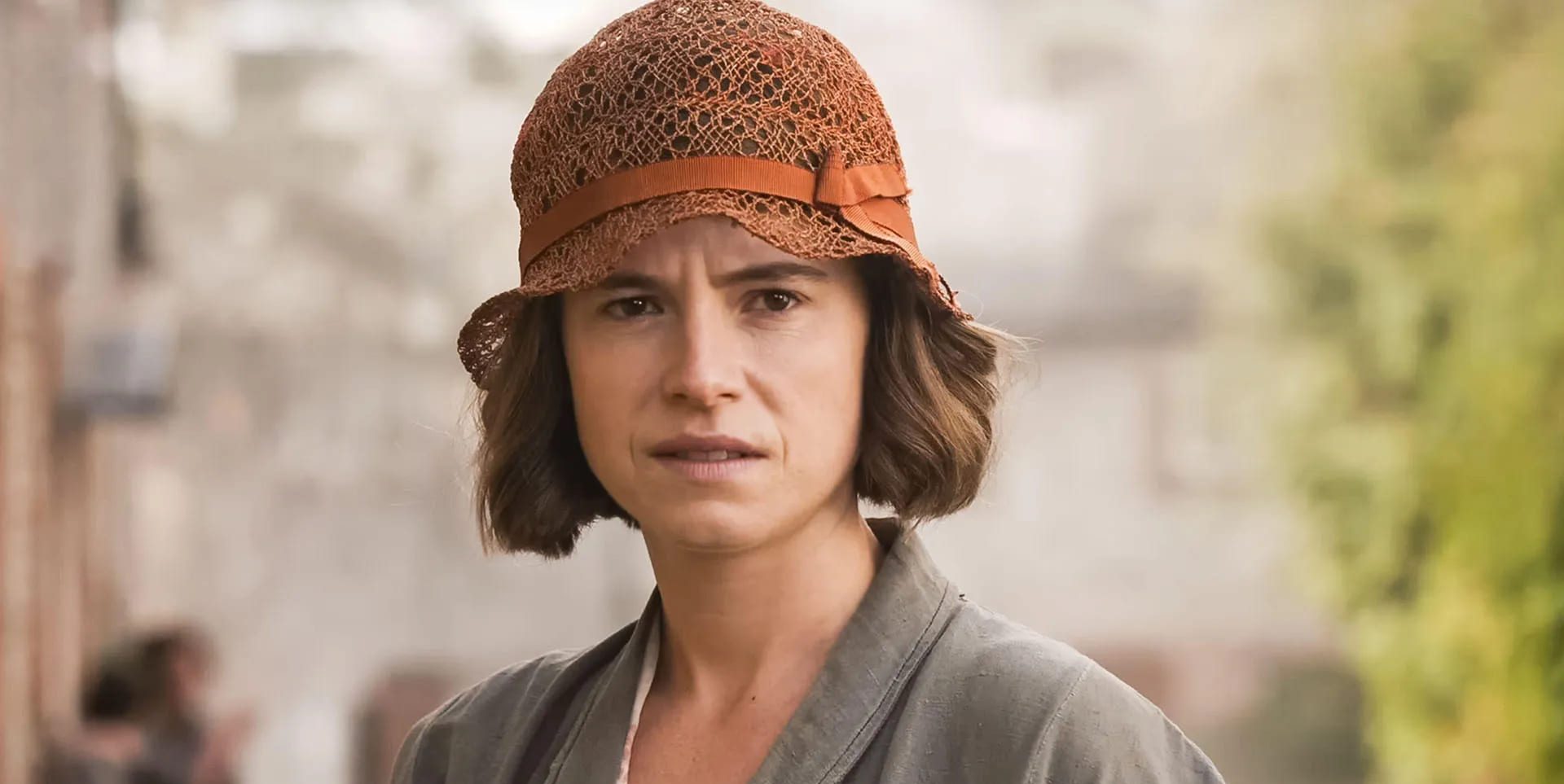In the black comedy British film, ‘Wicked Little Letters,’ a dispute between two neighbors – Edith Swan and Rose Gooding – descends into chaos as a series of hateful epistles surface in Littlehampton, UK. The vulgar content of the anonymous letters explicitly targeted at the Swan family leads the police to suspect their neighbor, Rose, who has a reputation for being foul-mouthed. Although there is little concrete evidence other than the circumstantial kind, Rose finds herself accused of being the vile perpetrator of a libel case that destroys her social standing in the local community. Therefore, the film’s period setting plays a significant role in highlighting the rigid social norms of the time, shedding light on the plight of the central characters and their struggles. SPOILERS AHEAD!
Wicked Little Letters Uncovers the Prevailing Attitude of 1920s England
Directed by Thea Sharrock from a script penned by Jonny Sweet, ‘Wicked Little Letters’ depicts the real-life scandal case of the Littlehampton libel letters during the early 1920s. As such, the narrative delves into the repression of women during the British suffragette movement and their battle to be heard. Throughout the film, there are illustrations of how the three central characters of the piece – Edith Swan, Rose Gooding, and Police Constable Gladys Moon – are judged and belittled by society for stepping outside the norm of having strong opinions of their own that they are not allowed to give any credence to. Their private and public lives are led within the quaint town of Littlehampton, where everyone monitors everyone else, leaving no avenue to slip up.

While Edith remains confined to the borders of her home as her controlling father, Edward Swan, keeps a tight leash around her neck, those feelings of inadequacy and trying to fit the norm bubble forth into venomous letters targeted at people around her and towards herself. Olivia Colman, who plays Edith, told USA Today, “It’s fascinating to look at because many women are still expected to behave in certain ways.” The film carries a comedic tone to its exploration, presenting a satirical take on the connection between profanity and womanhood. Throughout the narrative, as the hateful letters start appearing in the Swan household, there is moral and societal outrage at the prospect of the offensive content being penned within the messages.
When the police try to look into the matter, they do not spend more than an iota of effort before apprehending Rose Gooding as the prime suspect in the crime. Their reasoning is nothing more than Rose’s proclivity to swear a lot and her apparent uncouthness as a lady, making her an outcast within Littlehampton. However, Moon explains to her fellow constable Papperwick that no one would be fazed by his foul-mouthedness if a man said the same things Rose did. The constable herself is a victim of covert and overt misogyny from her fellow peers and superiors for being a woman police officer. Therefore, despite their different contextual situations, the three characters suffer from the same vitriol and discrimination from those around them who purport to know better.
Wicked Little Letters Explores Women’s Lack of Free Expression
From the beginning, Edith Swan is depicted as a timid, button-down soul who listens and obeys everything her domineering father tells her to do. The woman takes his manipulation and gaslighting at face value while she is constantly chipped away from the inside. While the real-life Edith Swan is suspected to have had psychological conditions according to modern-day historians, the film personifies these mental health problems through the presence of Edward Swan, who selfishly keeps his daughter locked at home and allows her to behave in a certain manner he deems fit. These suffocating parameters are almost akin to living in a glass cage, where, understandably, Edith develops a penchant for letting herself go from time to time through her vulgar letters.

In the same interview, Thea Sharrock added, “One of the nice things about period pieces is that you’re always reflecting on today. If on one level, this movie makes people think about how we can move positively in certain directions, that would be amazing.” Although the narrative focuses on the scandal of the libel case from the 1920s and how it ruined the reputation of Rose Gooding and eventually Edith Swan, it also probes into the underlying societal structures governing people’s behavior. The shackles of existence can often turn into a noose around the necks of those looking to express themselves honestly but lacking the courage. In the case of ‘Wicked Little Letters,’ it does this expertly through its exploration of profanity in a time when it is frowned upon, especially from a woman.
Read More: Why Did Edith Write the Letters in Wicked Little Letters, Explained


You must be logged in to post a comment.